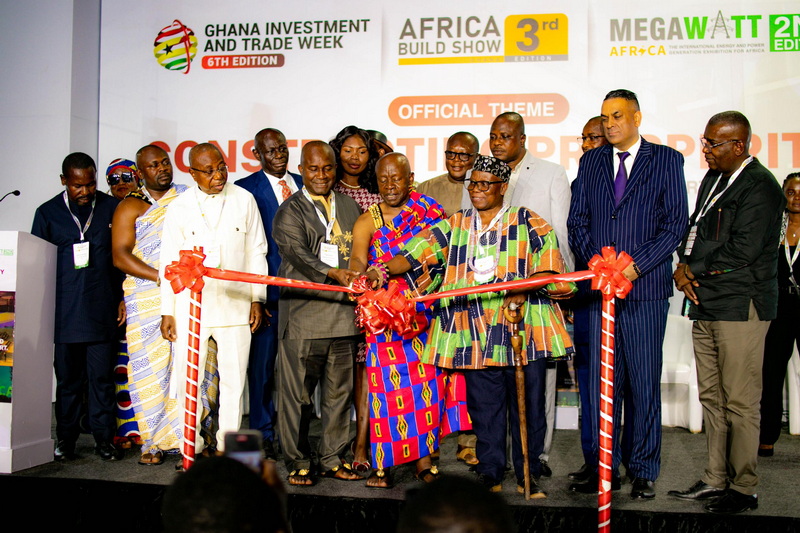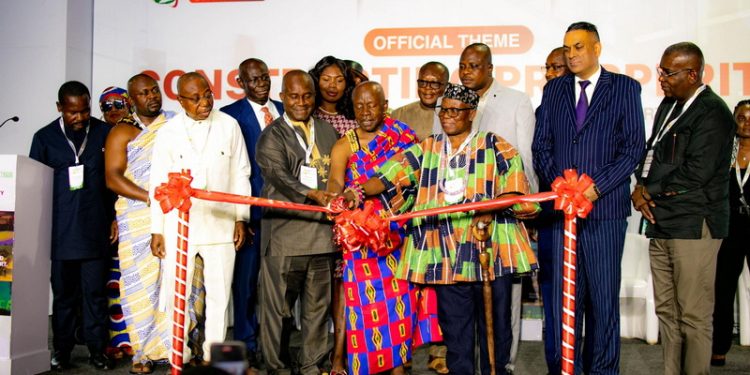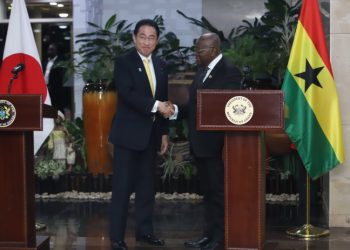Dr David Ofosu-Dorte, Founder and Senior Partner of AB & David Africa, has proposed that the public sector should not lead feasibility studies for Public-Private Partnership (PPP) projects.
He argued that the current practice has significantly contributed to Ghana’s high public sector debt, as many feasibility studies for projects are either incomplete or never executed.
Delivering the keynote address at the 2025 Ghana Investment and Trade Week Summit (GITW) in Accra, Dr Ofosu-Dorte stated: “We have borrowed huge amounts of money to do feasibility studies that we have not delivered.”
The GITW 2025 summit, held under the theme “Constructing Prosperity: Advancing Industrial Growth Through Smart Infrastructural Planning,” brought together local and international investors to explore potential investment opportunities in Ghana.
Dr Ofosu-Dorte recommended that, instead of conducting full feasibility studies, the government should focus on pre-feasibility studies and the preparation of concept notes for PPP projects.
He explained that such an approach would help minimise risk and save costs, noting that many PPPs carry inherent risks that, if not properly managed, could negatively impact the public sector.

“Many PPP projects have failed in Ghana because the risks associated with them were borne by our governments,” he noted.
Dr Ofosu-Dorte also advocated for the creation of an ecosystem that encourages stronger collaboration between the public and private sectors. He stressed the need for political will to ensure the successful execution of PPP projects.
“We should be careful about statements we make when we hold both public and party positions,” he cautioned.
Ogyeahoho Yaw Gyebi III, President of the National House of Chiefs (NHC), emphasised the importance of smart infrastructure planning in driving industrial growth and national prosperity.
He highlighted the pivotal role of chiefs as enablers of inclusive development and symbols of a shared commitment to Ghana’s future.
Ogyeahoho Gyebi III observed that while PPPs have attracted about $10 billion in infrastructure investments across the West African region, Ghana’s share has been relatively small.
He therefore urged the adoption of blended finance models to attract Foreign Direct Investment (FDI) and stimulate economic growth.
The President of the NHC also underscored the importance of empowering Small and Medium-sized Enterprises (SMEs), which, he stressed, should not be treated as peripheral to the economy.
Mr Emmanuel Tetteh Martey, Chairman of the Ghana Chamber of Construction Industry (GhCCI), called for collective purpose and national will to build a modern, resilient, and prosperous Ghana.
“Infrastructure is the heartbeat of a nation’s development, laying the foundation for trade and job creation,” he said.
Mr Martey commended the Mahama administration for its development initiatives, including the Big Push and the 24-Hour Economy.
“The Big Push is not merely a slogan, but a significant employment and transformation initiative,” he said, adding that the 24-Hour Economy will require reliable power and solid infrastructure.
DISCLAIMER: The Views, Comments, Opinions, Contributions and Statements made by Readers and Contributors on this platform do not necessarily represent the views or policy of Multimedia Group Limited.
DISCLAIMER: The Views, Comments, Opinions, Contributions and Statements made by Readers and Contributors on this platform do not necessarily represent the views or policy of Multimedia Group Limited.
- President Commissions 36.5 Million Dollars Hospital In The Tain District
- You Will Not Go Free For Killing An Hard Working MP – Akufo-Addo To MP’s Killer
- I Will Lead You To Victory – Ato Forson Assures NDC Supporters
Visit Our Social Media for More




